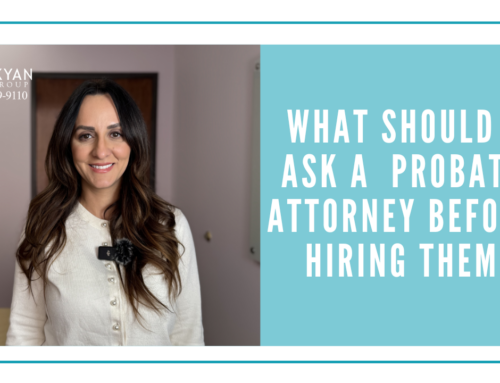
Now that you have acquired your wealth, whether large or small, it is time to protect it. Regardless of your wealth level, any one can be sued resulting in loss of your hard earned assets. Asset protection planning is key to a comprehensive estate plan. Your estate plan should cover the unexpected, avoid the probate court system, and provide you with asset protection.
What is Asset Protection?
Asset Protection is the use of legal structures and strategies to transform property that creditors might snatch away into property that is completely, or, at the very least, partially, protected. This type of planning cannot be done quickly to protect against your existing legal problems. Rather, it is a plan that is put in place long before your problems arise and you find yourself in court.
Here are 4 tools you should implement TODAY to better protect your assets from creditors and lawsuits.
4 Tips for asset protection
Tip Number 1: 401(k) or IRA Investments
Under federal law, tax-favored retirement accounts, including 401(k)s and IRAs (but excluding inherited IRAs) are protected from creditors in bankruptcy (with certain limitations). So, by maximizing contributions to your retirement account you are not only increasing your retirement savings, but you are also shielding it from creditors and lawsuits.
Tip Number 2: Insure!
The first line of defense against lawsuits is always insurance.
For example, Sally fell and broke her leg on John’s property. Sally sues John. John’s homeowner’s insurance will be the first line of defense for John. This also applies to your automobile, business, professional, malpractice, and worker’s compensation insurances. The insurance company will be first in line to pay the damages claimed. They will also often times provide payment of the legal fees associated with the defense of the lawsuit.
For example, John’s insurance company will hire an attorney on his behalf to defend the lawsuit Sally has brought against him.
You should review all of your policies on an annual basis to make sure that you have enough coverage for your risk. This may mean increasing your liability limits on all your policies.
Tip Number 3: Umbrella Insurance
Umbrella insurance is additional liability insurance you can purchase to supplement your underlying insurance policies.
For example, John has $1,000,000 coverage on his homeowner’s insurance. If Sally sues and wins a judgment for $1,300,000, John’s insurance company will pay $1,000,000. The remaining $300,000 will be John’s responsibility. If John also purchased umbrella insurance for $1,000,000, his umbrella insurance would jump in to cover the remaining $300,000. This will leave John with nothing to pay out of pocket.
Tip Number 4: Move Rental or Investment Real Estate into an LLC
If you are a landlord or a real estate flipper or investor, then in addition to having great insurance policies and umbrella insurance, you should use a limited liability company (LLC). This will help you protect your assets from creditors and lawsuits, whether that lawsuit arises from actions related to the asset, or your personal actions.
If you are interested in asset protection planning for your investment real estate using an LLC, contact our office. Schedule a consultation to discuss whether the LLC will protect you from both inside and outside liability.






You must be logged in to post a comment.